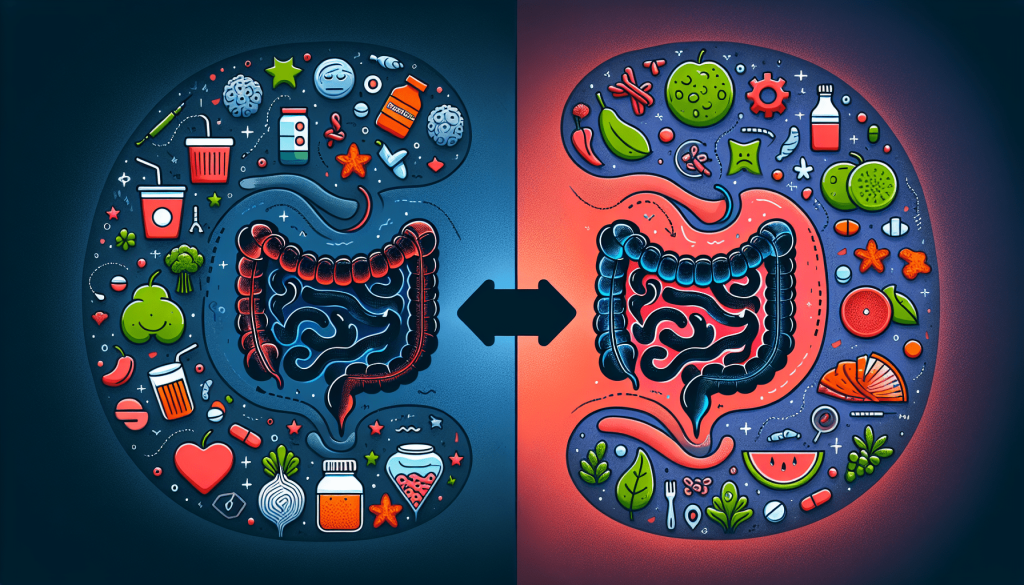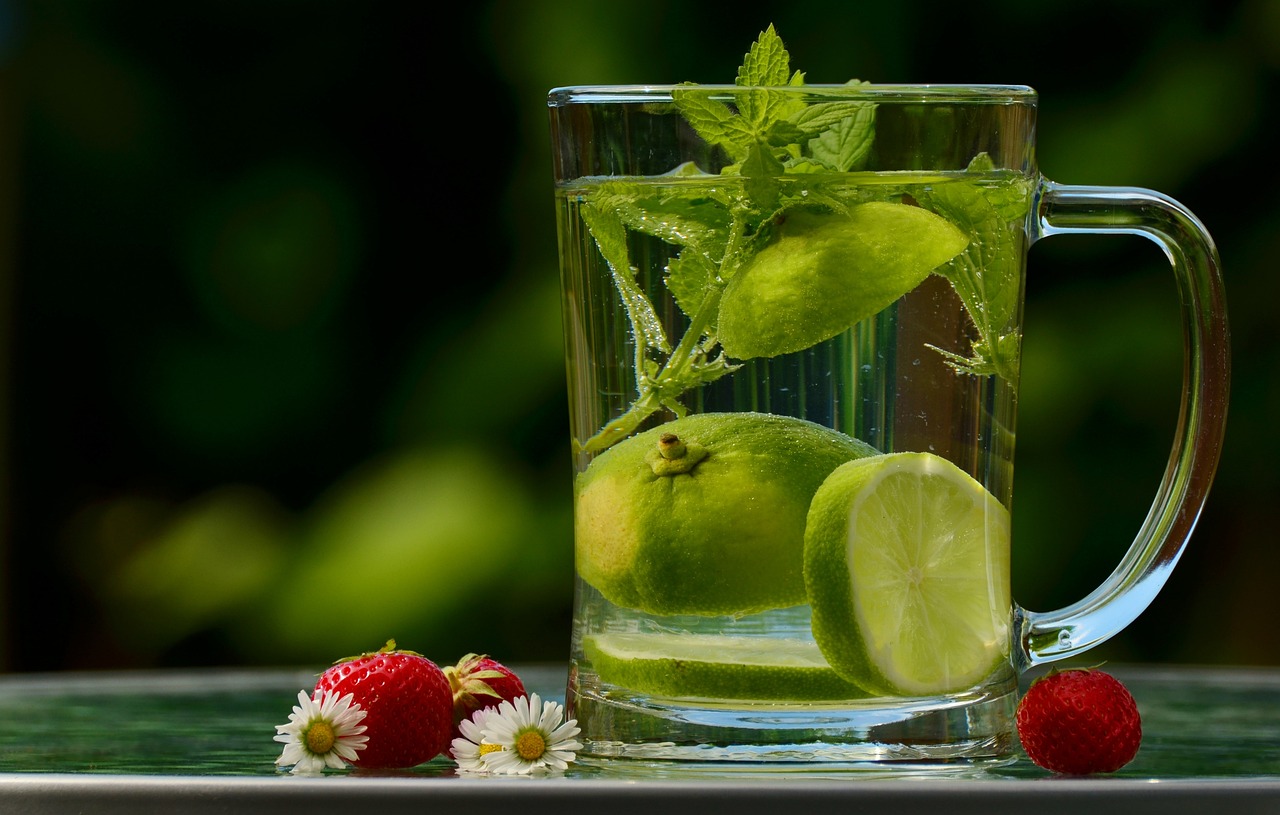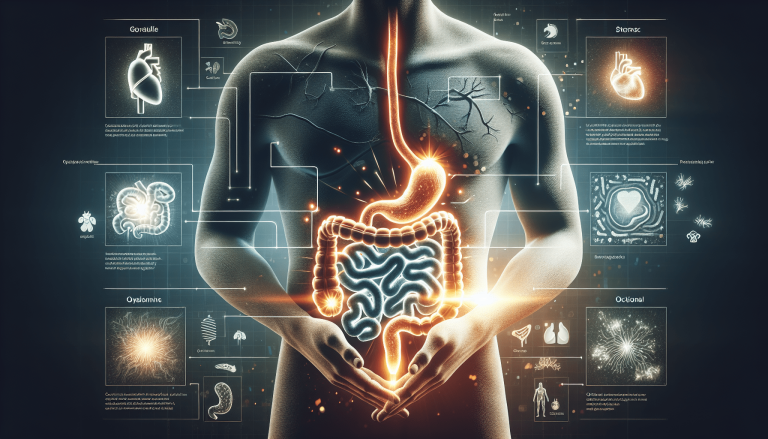How Do I Detox And Restore My Gut?
Are you wondering how to detox and restore your gut? Taking care of your gut health is essential for overall well-being, as it plays a crucial role in digestion, nutrient absorption, and even immune function. In this article, we will explore various effective strategies to detoxify and restore your gut, helping you achieve better digestive health and overall vitality. So, let’s dive into the world of gut restoration and discover the steps you can take to support a healthy gut.
Understanding Gut Health
What is gut health?
Gut health refers to the overall well-being of your digestive system, specifically the balance of bacteria and microorganisms that reside in your gut. It plays a crucial role in maintaining your overall health and immune function.
Why is gut health important?
A healthy gut is essential for proper digestion, nutrient absorption, and a strong immune system. It also affects your mental health, as there is a strong connection between the gut and the brain. Poor gut health can lead to digestive issues, nutrient deficiencies, weakened immunity, and even mental health disorders such as anxiety and depression.
Signs of an unhealthy gut
There are several signs that indicate an unhealthy gut. These include:
- Digestive issues like bloating, gas, and constipation.
- Food intolerances and allergies.
- Chronic fatigue and low energy levels.
- Skin problems such as acne and eczema.
- Frequent infections and a weakened immune system.
- Mood swings, depression, and anxiety.
- Poor concentration and brain fog.
Factors Affecting Gut Health
Diet and nutrition
One of the biggest factors that affect gut health is your diet. Consuming a diet high in processed foods, sugar, unhealthy fats, and low in fiber can disrupt the balance of gut bacteria and promote inflammation. Instead, focus on a diverse range of whole foods, including fruits, vegetables, whole grains, lean proteins, and healthy fats to support a healthy gut.
Stress and mental health
Stress has a significant impact on gut health. When you’re stressed, your body releases stress hormones that can affect the balance of bacteria in your gut and lead to inflammation. Additionally, stress can disrupt your digestion and contribute to digestive issues. Managing stress through practices like meditation, yoga, and deep breathing exercises can help support a healthy gut.
Medications and antibiotics
Certain medications, such as antibiotics, can disrupt the gut microbiota by killing both harmful and beneficial bacteria. While antibiotics are sometimes necessary, it’s important to use them judiciously and consider taking probiotics to replenish the beneficial bacteria. Other medications like nonsteroidal anti-inflammatory drugs (NSAIDs) can also contribute to gut health issues.
Lifestyle choices
Lifestyle choices like smoking and excessive alcohol consumption can negatively impact gut health. Smoking increases the risk of developing gastrointestinal disorders, while excessive alcohol consumption can disrupt the balance of gut bacteria and lead to inflammation. Quitting smoking and moderating alcohol intake can help support a healthier gut.
Environmental factors
Environmental factors, such as exposure to toxins and pollutants, can also affect gut health. Pesticides, heavy metals, and other toxins can disrupt the gut microbiota and contribute to inflammation. Choosing organic produce, using toxin-free household products, and filtering your water can minimize your exposure to harmful substances and support a healthier gut.
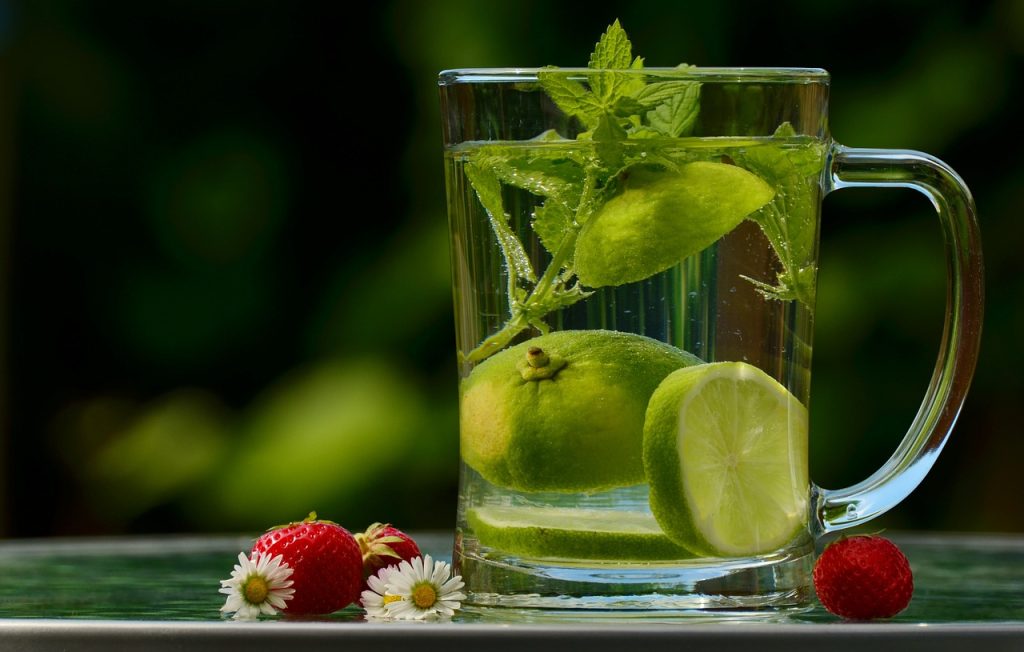
Detoxifying Your Gut
Remove inflammatory foods
To detoxify your gut, start by eliminating inflammatory foods from your diet. These include processed foods, refined sugars, artificial additives, and hydrogenated oils. These foods can contribute to gut inflammation and disrupt the balance of bacteria. Instead, focus on whole, unprocessed foods.
Increase fiber intake
Fiber is essential for a healthy gut as it promotes regular bowel movements and supports the growth of beneficial bacteria. Increase your intake of fiber-rich foods such as fruits, vegetables, whole grains, and legumes. Aim for at least 25-30 grams of fiber per day.
Stay hydrated
Proper hydration is crucial for maintaining a healthy gut. Drink an adequate amount of water throughout the day to support digestion and prevent constipation. Water also helps transport nutrients to cells and removes waste from the body.
Include probiotic-rich foods
Probiotics are beneficial bacteria that support gut health. Incorporate probiotic-rich foods into your diet, such as yogurt, kefir, sauerkraut, kimchi, and kombucha. These foods help restore the balance of bacteria in your gut.
Consider herbal supplements
Certain herbs like slippery elm, marshmallow root, and licorice root have soothing properties that can aid in healing the gut lining. You can find these herbs in supplement form, but it’s always best to consult with a healthcare professional before starting any new supplements.
Reduce alcohol and caffeine consumption
Alcohol and caffeine can irritate the lining of your gut and disrupt the balance of bacteria. Limit your alcohol and caffeine intake to support a healthier gut.
Exercise regularly
Regular exercise can improve gut motility and promote healthy digestion. Aim for at least 30 minutes of moderate-intensity exercise most days of the week to support your gut health.
Restoring Gut Health
Eat a diverse range of foods
Consuming a variety of foods ensures that you get a wide range of nutrients to support gut health. Incorporate different fruits, vegetables, whole grains, lean proteins, and healthy fats into your meals to provide your gut with the necessary nutrients.
Focus on gut-friendly nutrients
Certain nutrients are particularly beneficial for gut health. Include foods rich in omega-3 fatty acids, such as fatty fish (salmon, mackerel), flaxseeds, and chia seeds. Other gut-friendly nutrients include vitamin C (found in citrus fruits, bell peppers), zinc (found in lean meats, nuts, and seeds), and antioxidants (found in colorful fruits and vegetables).
Manage stress levels
As mentioned earlier, stress can have a negative impact on gut health. Practice stress management techniques such as meditation, deep breathing exercises, and engaging in activities you enjoy to reduce stress levels and support a healthier gut.
Avoid overusing medications
While medications are sometimes necessary, overusing antibiotics, NSAIDs, and other medications can disrupt the balance of gut bacteria. Only take medications when prescribed or necessary and discuss alternative options with your healthcare provider.
Get enough sleep
Quality sleep is crucial for overall health, including gut health. Aim for 7-9 hours of uninterrupted sleep each night to support your gut’s natural healing processes.
Practice mindful eating
Eating mindfully allows you to be more in tune with your body’s hunger and fullness cues. Chew your food thoroughly, eat slowly, and avoid distractions like screens while eating. This can aid in digestion and prevent overeating, supporting a healthier gut.
Consider gut-healing supplements
In addition to a healthy diet, certain supplements can support gut healing. These include L-glutamine, omega-3 fatty acids, digestive enzymes, magnesium, vitamin D, and zinc. Consult with a healthcare professional to determine if these supplements are appropriate for you.
Maintain a healthy weight
Excess weight, especially around the abdomen, can contribute to gut health issues. Focus on maintaining a healthy weight through a balanced diet and regular physical activity.
Engage in regular physical activity
Regular physical activity not only supports weight management but also promotes proper digestion and bowel movements. Aim for a combination of cardio exercises, strength training, and flexibility exercises for optimal gut health.

The Role of Probiotics
What are probiotics?
Probiotics are live bacteria and yeasts that are beneficial to your health, especially your digestive system. They can be found in certain foods and supplements.
Benefits of probiotics for gut health
Probiotics help maintain a healthy balance of bacteria in your gut, reduce inflammation, improve digestion, and support immune function. They can also help alleviate symptoms of certain gastrointestinal disorders such as irritable bowel syndrome (IBS) and inflammatory bowel disease (IBD).
Sources of probiotics
Probiotics can be found in various foods, including yogurt, kefir, sauerkraut, kimchi, tempeh, and miso. Look for these foods labeled as containing live and active cultures.
Choosing the right probiotic supplement
When selecting a probiotic supplement, consider the specific strains of bacteria it contains and their intended benefits. Look for supplements that are third-party tested for quality and potency. It’s advisable to consult with a healthcare professional to determine which probiotic supplement is best suited for your needs.
Prebiotics and Their Benefits
What are prebiotics?
Prebiotics are a type of fiber that feed the beneficial bacteria in your gut. They act as food for probiotics, helping them thrive and exert their positive effects on gut health.
How do prebiotics support gut health?
By providing nourishment to probiotics, prebiotics help support a healthy balance of bacteria in your gut. They encourage the growth of beneficial bacteria while inhibiting the growth of harmful bacteria. This helps maintain a healthy gut environment and optimal digestion.
Sources of prebiotic foods
Prebiotic foods include garlic, onions, leeks, asparagus, bananas, oats, and flaxseeds. These foods are rich in various types of prebiotic fibers that can support gut health when included in your diet regularly.
Supplementing with prebiotics
If you find it challenging to consume enough prebiotic foods, you may consider taking a prebiotic supplement. These supplements typically contain prebiotic fibers like inulin and chicory root, which can provide the same benefits as prebiotic-rich foods. Again, consult with a healthcare professional before starting any new supplements.
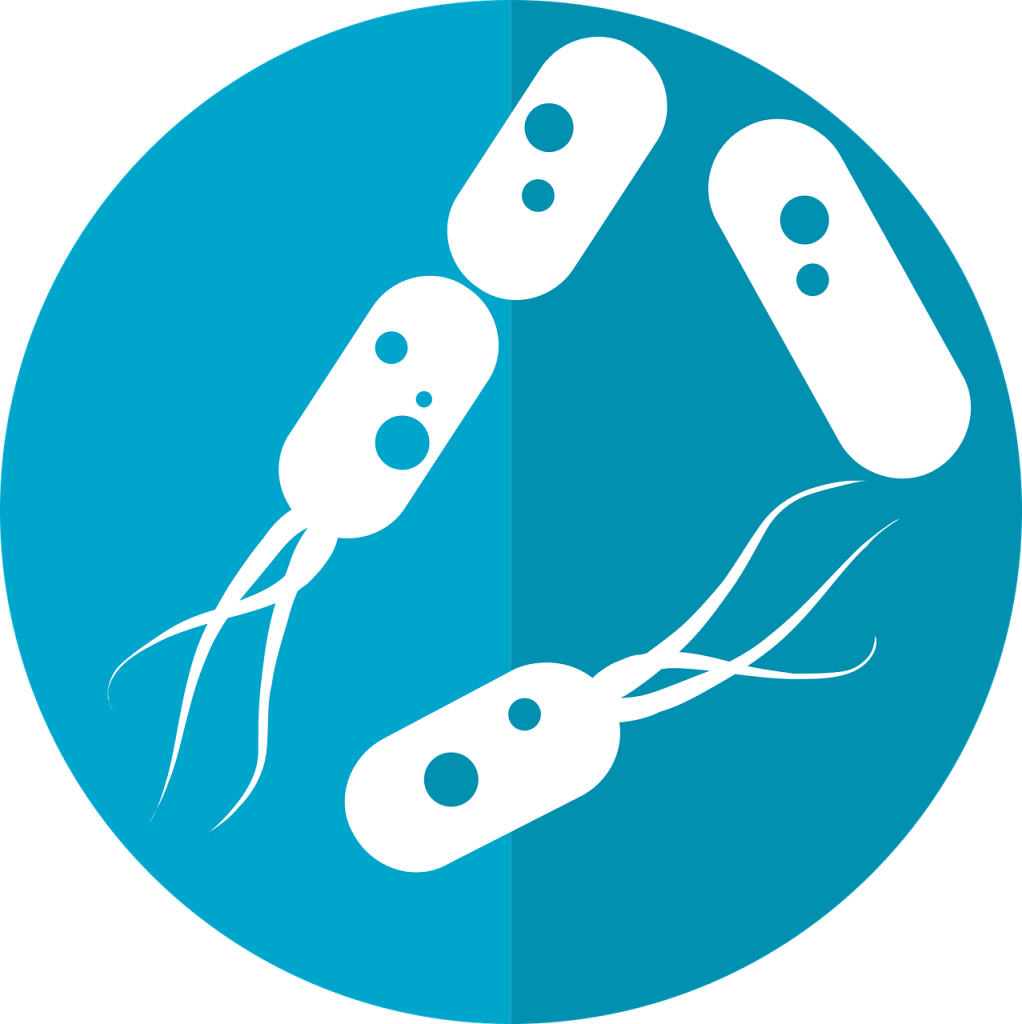
Healing Herbs for Gut Health
Aloe vera
Aloe vera has soothing properties that can help reduce inflammation in the gut. It also supports the healing of the gut lining. You can drink aloe vera juice or take aloe vera supplements to benefit from its healing properties.
Peppermint
Peppermint has been used for centuries to aid digestion and relieve gastrointestinal issues such as bloating and gas. You can enjoy peppermint tea or use peppermint essential oil in aromatherapy or diluted for topical application.
Ginger
Ginger is known for its anti-inflammatory and digestive benefits. It can help reduce nausea, improve digestion, and alleviate gastrointestinal discomfort. Enjoy ginger tea, add fresh ginger to your meals, or take ginger supplements for these benefits.
Turmeric
Turmeric contains a compound called curcumin, which has potent anti-inflammatory properties. It can help reduce gut inflammation and support overall gut health. Add turmeric to your meals or consider taking a curcumin supplement for its beneficial effects.
Marshmallow root
Marshmallow root has a soothing effect on the digestive tract and can help reduce inflammation. It forms a protective layer on the gut lining, which can alleviate symptoms of gastrointestinal disorders. You can find marshmallow root in supplement form or as a tea.
Licorice root
Licorice root has anti-inflammatory and anti-ulcer properties, making it beneficial for gut health. It can help alleviate symptoms of acid reflux, heartburn, and other gastrointestinal issues. Licorice root tea or supplements can be used to benefit from its properties.
Foods to Promote Gut Health
Yogurt and fermented foods
Yogurt and other fermented foods like sauerkraut, kimchi, and kefir are rich in probiotics that support a healthy gut. These foods contain live and active cultures that replenish your gut with beneficial bacteria. Choose plain, unsweetened varieties to avoid added sugars.
High-fiber fruits and vegetables
Fruits and vegetables are excellent sources of fiber, which promotes healthy digestion and provides nourishment for beneficial gut bacteria. Include a variety of colorful fruits and vegetables in your diet to support gut health.
Bone broth
Bone broth is rich in gelatin, collagen, and amino acids that support gut healing. It can help reduce inflammation and improve the integrity of the gut lining. Make your own bone broth using animal bones or opt for high-quality store-bought bone broth.
Fatty fish
Fatty fish like salmon, mackerel, and sardines are great sources of omega-3 fatty acids, which have anti-inflammatory properties. These fats support gut health and can help reduce inflammation in the digestive system.
Nuts and seeds
Nuts and seeds are packed with fiber, healthy fats, and antioxidants that support gut health. Enjoy a variety of nuts and seeds such as almonds, walnuts, chia seeds, and flaxseeds for their gut-healthy benefits.
Olive oil
Olive oil is rich in monounsaturated fats and antioxidants, which can help reduce inflammation and support a healthy gut. Use extra virgin olive oil as your primary cooking oil or drizzle it over salads and vegetables.

Gut-Healing Supplements
L-glutamine
L-glutamine is an amino acid that helps repair and maintain the gut lining. It supports gut integrity and can aid in healing various gastrointestinal issues. Consult with a healthcare professional to determine the appropriate dosage for your specific needs.
Omega-3 fatty acids
Omega-3 fatty acids have anti-inflammatory properties and can help reduce gut inflammation. Fish oil supplements or algae-based omega-3 supplements are a common way to obtain these beneficial fats.
Digestive enzymes
Digestive enzymes can aid in the breakdown of food and improve digestion. They support the absorption of nutrients and can provide relief for individuals with digestive issues. Look for enzyme supplements that contain a blend of different enzymes.
Magnesium
Magnesium plays a crucial role in muscle function, including the muscles in your digestive system. It can help relieve constipation and support bowel regularity. Magnesium supplements can be taken orally, but it’s best to consult with a healthcare professional to determine the appropriate dosage.
Vitamin D
Vitamin D deficiency has been linked to gut health issues. Adequate levels of vitamin D are important for a healthy gut and immune function. If you’re not getting enough sunlight exposure or if your levels are low, consider taking a vitamin D supplement.
Zinc
Zinc is a mineral that supports a variety of functions in the body, including gut health. It plays a vital role in maintaining the integrity of the gut lining and supporting the immune system. Zinc supplements are available in various forms, including capsules and lozenges.
Seeking Professional Help
When to consult a healthcare professional
If you’re experiencing persistent gut health issues or if your symptoms are significantly impacting your quality of life, it’s advisable to consult a healthcare professional. They can help assess your specific situation, provide personalized advice, and recommend appropriate tests or treatments.
Tests for assessing gut health
There are several tests that healthcare professionals can use to assess gut health. These may include stool tests to analyze the gut microbiome, food sensitivity tests, breath tests to assess digestive function, and blood tests to check for nutrient deficiencies or inflammation markers.
Finding the right healthcare practitioner
When seeking help for gut health, it’s important to find a healthcare practitioner who specializes in gastrointestinal health or functional medicine. Look for credentials such as a registered dietitian, gastroenterologist, naturopathic doctor, or functional medicine practitioner. They can provide expert guidance tailored to your specific needs and goals.
In conclusion, understanding gut health is essential for maintaining overall well-being. Factors such as diet, stress levels, medications, lifestyle choices, and environmental factors can significantly impact gut health. By detoxifying and restoring your gut through dietary and lifestyle changes, supplemented with probiotics, prebiotics, and healing herbs, you can improve digestion, support a healthy gut microbiota, and enhance your overall health. Remember to consult with a healthcare professional for personalized advice and guidance on optimizing your gut health.
Additional Resources

If you think digestive issues like bloating, constipation or GERD are caused by what you eat… think again!
A recent abdominal ultrasound from the University of Michigan Medical School has shown that digestive problems are caused by something deemed as the “gut-piranha”.
Once installed comfortably in your gut, this microscopic blue parasite will start devouring your stomach lining.
Since your stool can’t “slide” normally anymore, parts of it get stuck one over the other until they pile up and clog your intestines. In turn, this will cause all sorts of digestive issues and weight gain.
So, if you’re dealing with indigestion or diarrhea, no matter if this happens often or just a couple of times per month…
You need to watch this video immediately!
There is now clear proof that more and more Americans have this „blue gut-piranha” in their gut.
Find out here the one sign you should look out for.
